A Guide to Non-Toxic Haircare
Between hairstylists offering virtual haircuts, salons working at limited capacity, stress making your hair fall out, and having bed-hair days for months, we haven’t prioritized hair care as much. Summer didn’t help much, either. Salty oceans, hot wind, and sweat can be pretty tough for our strands. So how can you start a non-toxic haircare routine?
Healthy hair looks clean, soft to feel, shiny, untangled, has no frizz and is bouncy when shaking the head. To have this, you require a good overall health and freedom from disease and a daily chore of maintenance and grooming of hair. The good thing? It’s truly so simple. Less is more.
Even though having a healthy hair routine might not be at the top of your to-do list yet, we will most likely have you reconsider its importance after you’re done reading this article. So grab your comb and prepare to toss out your harsh hair products that have you showering yourself in neuro-toxic and carcinogenic chemicals.
Seriously, though.
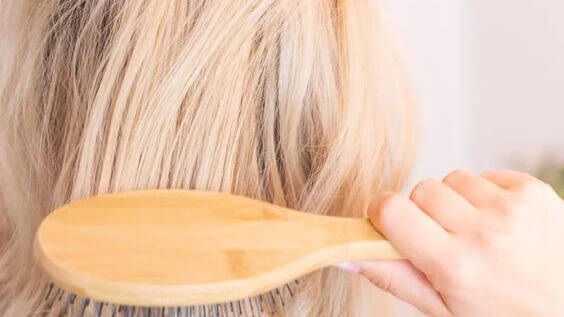
@reveenvert
Long Hair | More Care
Have you ever sat down to ponder why a piece of hair can identify who you are? Or why the biblical Samson lost all of his power by letting Delilah cut off all his hair? That’s because your hair is part of you and always has been. The ancient and native peoples all knew about this link between long hair, health and spirituality. They never cut their hair voluntarily. Short hair was a universal sign of slavery, shame, or defeat; a loss of power and identity. Not that if you have short hair, you’re a bad person or anything, but concerning how important hair has always been, people would only cut their hair in the event of captivity, for mourning purposes, or for hygiene.
In modern times, we not only cut our hair, but we style it. As Erica Conan, director of education at ColorProof, puts it, “There are no magical powers in haircutting scissors that make our hair grow faster when we get a trim.” However, cutting our hair removes those pesky split ends and healthy hair does grow faster. We not only require regular haircuts, but we use a bunch of products on our hair — shampoo, conditioner, hair spray, gel, dyes, masks, gloss, etc. The list goes on and on. The problem is, hair products are full of toxic chemicals that give your hair initial and short-term gratification, but in the long run, these ingredients can be extremely harmful to your health, causing more damage than shine…And not to mention harm to the planet.
Whether it’s curling, straightening, or blow-drying your hair, applying excess heat can be very damaging. It’s recommended to always use heat protectants prior to heat styling, and better yet, natural options. Shea Butter is considered a great heat protectant because its thermal conductivity is almost as good as popular toxic silicones used in most heat protectants, namely dimethicone and cyclomethicone.
However, just because an ingredient is 100% natural does not always make it the most effective option. Cosmetic scientist Erica Douglas states, “ there are many great products created using natural and synthetic ingredients to give you a healthier and safer heat protectant. If you are going to use an oil, be careful and make sure to apply a lightweight leave-in conditioner or a moisturizer as well; a pure heavy oil alone will likely leave you with dry, fragile strands.” Lighter oils such as macadamia, sweet almond, or apricot kernel, are great options to use before styling.
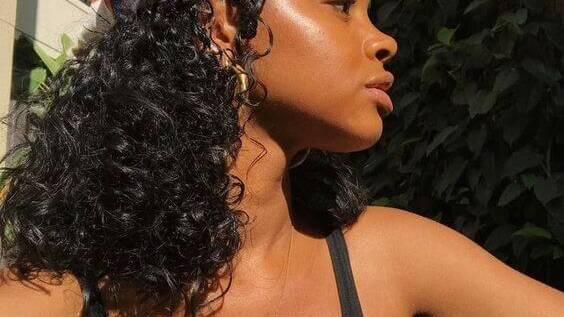
@whowhatwearuk
Listen to your hair
As noted by C. Young on Scott, human hair can be described best as an extension of the human nervous system. Hair is a genetic part of you; it is a hereditary extension of yourself and acts as a kind of antennae. Each hair plexus forms a network around a hair follicle and is a receptor, which means it sends and receives nerve impulses to and from the brain when the hair moves. This explains why your hair gets dry, fragile and itchy whenever you’re under stress.
Have you tried looking at the ingredients that are supposed to “treat it”? Listen to your hair.
Less Ingredients | More Nutrients
Most conventional shampoos contain 1,4-dioxane, a highly toxic carcinogen. According to the California Environmental Protection Agency, 1,4-dioxane is known to cause cancer and may cause kidney, respiratory, and neurological toxicity. The Environmental Working Group (EWG) has also stated that 1,4-dioxane is a groundwater contaminant.
Other chemicals commonly found in hair products and their long-term effects include:
Sodium Laurel Sulfate (SLS) / Sodium Laureth Sulfate (SLES): Dryness and irritation
Isopropyl Alcohol: Split ends, damage, and frizz
Propylene/Polyethylene Glycol: Scalp irritation and brittleness
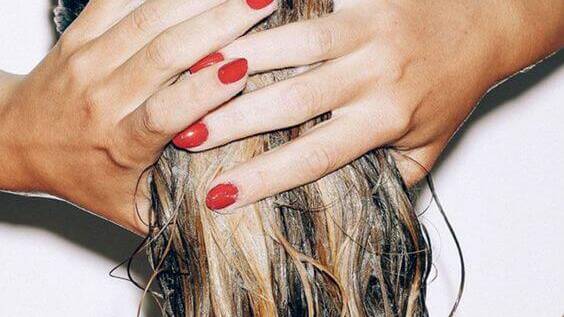
@refinery29
Good for you | Good for the planet
So how do we get healthy and beautiful hair, naturally? Here are some tips:
Custom-made formulas just for you: Prose believes in clean and responsible beauty. Their formulas give you the specific ingredients your hair actually needs, and sometimes that means a more efficient man-made element here or a simple natural there. Their magic is in the uniquely personalized combinations. Every product they formulate is free of parabens, sulfates, phthalates, mineral oils, GMOs, and is always cruelty-free. Based on your preferences, they can make your formula vegan, gluten-free, silicone-free, dye-free or fragrance-free. They also use ingredients that are ethically harvested from all corners of the world in concert with trusted local partners.
Scalp treatment and hair care: Act+Acre
Clinical study from Princeton Lab shows their regimen removes 95% of build-up from scalp and hair. Determined to challenge the status quo, Act+Acre partnered with leading scientists to adapt biochemical engineering technology into a new, innovative manufacturing process for hair products. Our patented Cold Processed(R) method uses hyperbaric chambers, ice cold water, and 1,200 pounds of pressure to combine their plant-based ingredients. They also partner with farms and labs that subscribe to sustainable business practices and equal wages to all parties, from the farmers who handpick each botanical ingredient, to the factory workers who extract the essences, to the scientists who develop the formulations.
Use apps such as “Think Dirty.” This is an amazing way to learn about the toxic ingredients found in your hair products and personal care products in general.
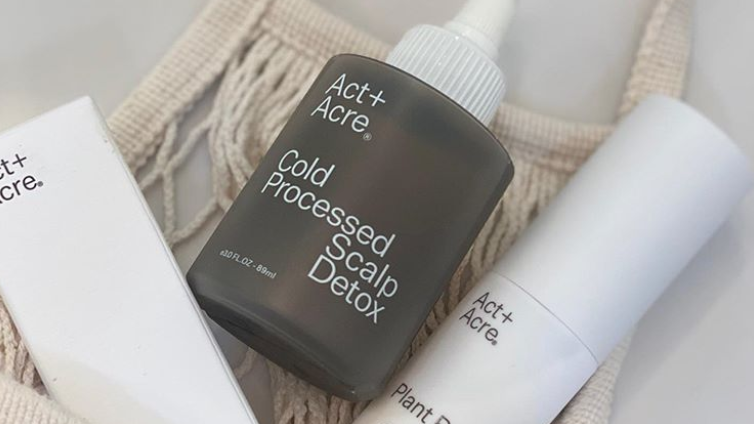
Act+Acre
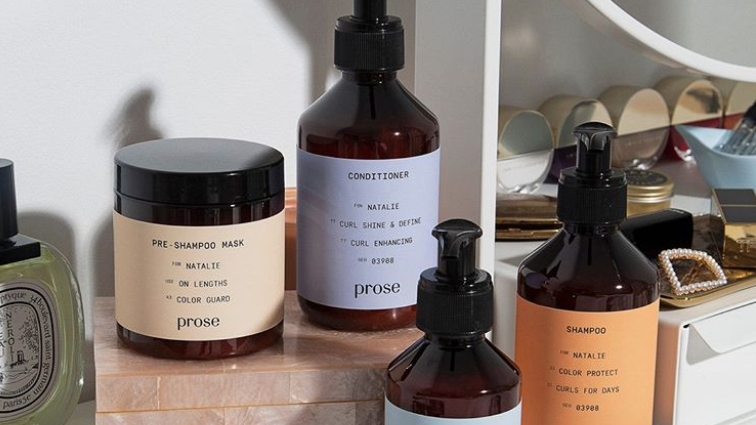
Prose
Visit a holistic hair salon near you.
If you’re a Miami local, we’re currently loving Root & Bark. This salon lets you immerse yourself in a multi-sensorial, non-toxic experience using active botanicals and pure essential oils. When you visit, ask for Alex and let him know CADA referred you. He’s great!
Switch to non-toxic and organic hair color.
The Organic Way (Oway) is the world’s first professional organic hair color and care line with biodynamic, organic, and fair trade ingredients. They currently only ship to Europe, but you can directly buy the products at the Root & Bark salon. You’ll never look back.
Keep your daily shampoo and conditioner use simple. You don’t necessarily need to wash your hair every single day, and sometimes you might not even need products at all. Here are some more brands for daily use that we love to love.
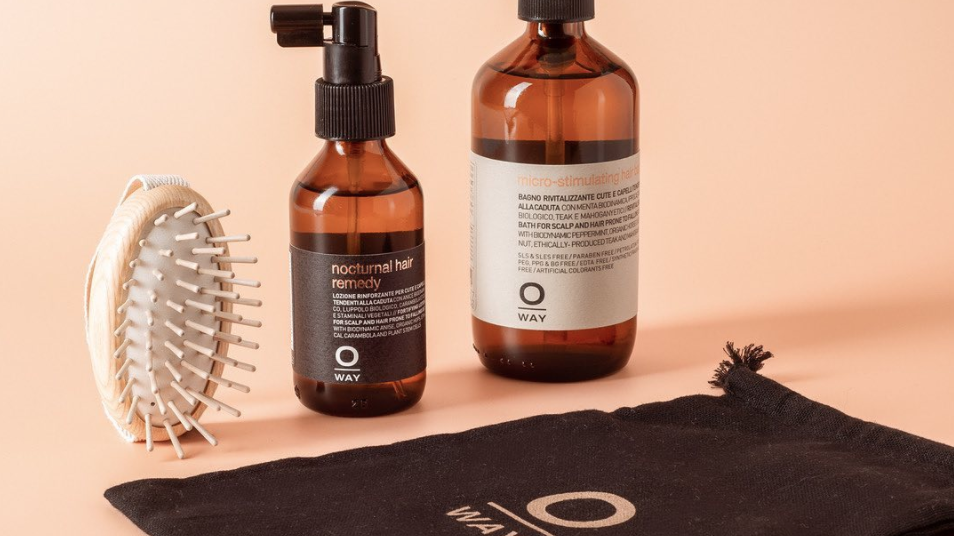
Oway
This article is for informational purposes only, even if and regardless of whether it features the advice of physicians and medical practitioners. This article is not, nor is it intended to be, a substitute for professional medical advice, diagnosis, or treatment and should never be relied upon for specific medical advice. The views expressed in this article do not necessarily represent the views of CADA.

